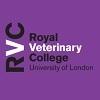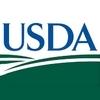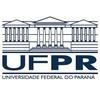Explore all the information on
Coccidiosis in poultry
Coccidiosis is a protozoal disease causing diarrhea, ,weight loss and decreased production in poultry. It can be fatal. Prevention is key and is achieved with use of anticoccidials or vaccination. Diagnosis is by fecal flotation to detect oocysts, often in combination with characteristic necropsy findings. Coccidiosis is caused by protozoa of the phylum Apicomplexa, family Eimeriidae. Most species affecting poultry belong to the genus Eimeria and infect various intestinal sites. The disease course is rapid (4–7 days) and is characterized by parasite replication in host cells with extensive damage to intestinal mucosa. Coccidia in poultry are generally host-specific, and the different species infect specific portions of the intestine. However, in game birds, including quail, the coccidia may infect the entire intestinal tract. In poultry, game birds reared in captivity, and wild birds, coccidiosis occurs worldwide.
Background Seven species of the genus Eimeria (Apicomplexa, Coccidia) cause chicken coccidiosis, a disease with a huge economic impact in the poultry industry. Disease pathology is characterised by diarrhoea, malabsorption and for some species haemorrhage, and has a severe impact on animal welfare, efficiency of feed conversion and weight gain. Eimeria parasites disseminate readily through flocks via the oral-faecal route and are highly prevalent throughout the world [1]....
Comments : 0
Recommendations: 2
Santiago Ramírez (FCR Consulting Group) discussed feed formulation, probiotics and phytogenics, during the 1st PoultryUniverse Coccidiosis Congress in Curitiba, Brazil....
Comments : 1
Recommendations: 5
Damer Blake (Royal Veterinary College) discussed interactions with the parasite Eimeria, during the 1st PoultryUniverse Coccidiosis Congress in Curitiba, Brazil....
Comments : 1
Recommendations: 7
Roseline Angel (University of Maryland) discussed the nutritional and management aspects of Coccidiosis prevention, during the 1st PoultryUniverse Coccidiosis Congress in Curitiba, Brazil....
Comments : 5
Recommendations: 2
.jpg&w=3840&q=75)

Disrupt the 4D, Diarrhoea, Dysentery, Death, Dehydration, in poultry and pigs
Suggested link
I am a doctor in Pakistan related to poultry feed and I mostly check poultry farms. I have been facing coccidiosis problem from 4 to 5 months in the field. There is mostly litter dry and climate in pakistan is mostly dry. But my poultry farmers face the coccidiosis problem in three or four times during 42 days of flock. This causes great economic losses to them. Mostly I use sulfaquinoxaline or toltrazuril salt in water and clopidol in feed to control and treat coccidiosis but sometimes...
Comments : 37
Recommendations: 0
INTRODUCTION In studies with birds which objective is to evaluate the immune responses and in which nutrients are manipulated to enhance bird immunity, not only performance responses are used. As the immune system is very complex, and some parameters are influenced by related sub-systems, immune responses are also used. Cell-mediated immune response is one of those methodologies applied in this kind of research as an auxiliary tool. Cutaneous basophil hipersensitivity...
Comments : 0
Recommendations: 0
Johan Van Erum (Galluvet) discussed live Coccidiosis vaccination, during the 1st PoultryUniverse Coccidiosis Congress in Curitiba, Brazil....
Comments : 1
Recommendations: 0
Damer Blake (Royal Veterinary College) talked about the benefit of additional antigens in the development of vaccines using Eimeria as a vector, during the 1st PoultryUniverse Coccidiosis Congress in Curitiba, Brazil....
Comments : 1
Recommendations: 3
“There is a global loss of about 2.4 billion US dollars in poultry industry alone due to coccidian infections”. Each year, over 50 billion chickens are raised as a source of meat, accounting for over one-third of...
Comments : 1
Recommendations: 5
Highlights from the conversation with Michael Kogut, Billy Hargis, Ricardo Rauber, Carlos De Oliveira and Luis Carlos Farias, who joined Fernando Vargas for this roundtable, during the 1st PoultryUniverse Coccidiosis Congress in Curitiba, Brazil....
Comments : 2
Recommendations: 2
Fiona Tomley (Royal Veterinary College) talked about several aspects regarding vaccination, including evaluation of genotypes and antigens, during the 1st PoultryUniverse Coccidiosis Congress in Curitiba, Brazil....
Comments : 1
Recommendations: 3
Highlights from the conversation with Michael Kogut, Roseline Angel, Santiago Ramirez, Sergio Luiz Vieira, Doug Korver and Luis Miguel Gomez, who joined Elizabeth Santin and Mariana Lemos de Moraes for this roundtable, during the 1st PoultryUniverse Coccidiosis Congress in Curitiba, Brazil....
Comments : 0
Recommendations: 4
Carlos De Oliveira (Vetanco) shared his experience in the field with disease challenges during egg production. This presentation took place in the 1st PoultryUniverse Coccidiosis Congress in Curitiba, Brazil....
Comments : 0
Recommendations: 1
Michael Kogut (USDA) gave a presentation on the connection between host metabolism and immunity in poultry, during the 1st PoultryUniverse Coccidiosis Congress in Curitiba, Brazil....
Comments : 1
Recommendations: 5
Doug Korver (University of Alberta) spoke on poultry diets, performance and immunity, during the 1st PoultryUniverse Coccidiosis Congress in Curitiba, Brazil....
Comments : 0
Recommendations: 3
Elizabeth Santin (Federal University of Paraná, Brazil) talked about the success of the 1st PoultryUniverse Coccidiosis Congress, held in Curitiba, Brazil, and the idea of a second edition. ...
Comments : 0
Recommendations: 2
PoultryUniverse is an academic organization created by students of veterinary medicine at Federal University of Paraná (UFPR). Our goal is to promote the poultry science inside the university and allow a strong network among students, industry and research.
In August, professionals from Brazil, USA, Canada, Mexico, Belgium, Colombia, Argentina and Australia will join us to share experiences from field and...
Comments : 0
Recommendations: 1
Dr. Greg Mathis (Southern Poultry Research) talks about the two main diseases in poultry and explains how to control them, during the 5th IHSIG Symposium on Poultry Intestinal Health in Bangkok, Thailand....
Comments : 3
Recommendations: 10


An impact of Deoxynivalenol produced by Fusarium graminearum on broiler chickens
Suggested link
Rob Patterson (Canadian Bio-Systems) explained the benefits of nucleotides in tissue recovery and cellular regeneration in broilers, as well as their combination with exogenous carbohydrases and fatty acids, during IPPE 2018 in Atlanta, USA....
Comments : 10
Recommendations: 3



.jpg&w=3840&q=75)







.jpg&w=3840&q=75)










.jpg&w=3840&q=75)



.jpg&w=3840&q=75)










